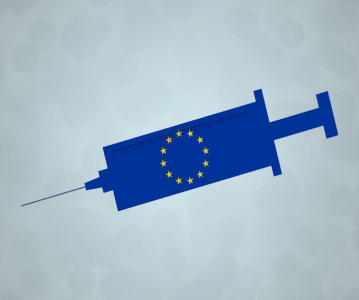A Treatment Revolution is Underway: All-Oral Therapies Transform Global Hepatitis C Antiviral Market

Drug development for hepatitis C virus (HCV) antivirals has amplified with rising incidence rates and the intense need for curative therapy in the absence of a preventative vaccine. Change is underway as the market moves away from protease inhibitors and interferon regimens towards highly effective, easily-tolerated, interferon-free oral therapies.
Gilead’s mega blockbuster Sovaldi is the first of these novel therapies to launch into the market and is projected to hit close to $10 billion during its first year. Several strong competitors, however, are maneuvering aggressively to narrow the market gap by introducing a HCV antiviral that can outdo Gilead’s drug.
New analysis from Frost & Sullivan’s "A Product and Pipeline Analysis of the Global Hepatitis C Virus (HCV) Antiviral Market" expects robust demand for HCV antivirals as around 160 million people across the globe are chronically infected with HCV, and at least 350,000 die annually from HC-infected liver diseases such as liver cancer and conditions requiring transplantation. The United States alone accounts for nearly five million of the total HCV-affected population, with the majority being baby boomers entering the 65-plus age bracket.
“Evidently, chronic infection with HCV remains a serious public health threat,” said Frost & Sullivan Healthcare Principal Analyst Randy Budros. “Until an efficacious preventative vaccine emerges, the patient strength will remain sizable due to the likelihood of high-risk behaviors from a substantial portion of the population and the emergence of resistant viral strains.”
While Gilead’s Sovaldi holds promise in fighting the HCV, its astronomical price — $84,000 for a 12-week course of treatment — has unleashed a firestorm of criticism from government agencies, patient advocacy groups, and payers. Indeed, the prohibitive price has triggered a Congressional request for Gilead to justify its pricing, which is projected to increase Medicare Part D spending by as much as $6.5 billion in 2015 alone.
“Gilead and other future market entrants have to create a compelling pricing rationale by driving home the potential cost savings from a high-performance, all-oral regime, zeroing in on the downstream cost saving such as the reduction of liver transplants,” noted Budros. “Equally crucial is the need to make HCV antivirals more affordable and accessible to patients.”
With recent clinical data showing close to 100% cure rates for Sovaldi, future contenders will be hard pressed to succeed in the marketplace. Competitors must aim to satisfy the until now unmet need for a once-daily, ribavirin-free, all-oral, pan-genotypic regimen that has a short treatment duration.
Related News
-
News Patients vs Pharma – who will the Inflation Reduction Act affect the most?
The Inflation Reduction Act brought in by the Biden administration in 2022 aims to give better and more equitable access to healthcare in the USA. However, pharma companies are now concerned about the other potential costs of such legislation. -
News CPHI Podcast Series: What does the changing US Pharma market mean for industry and patients alike?
In this week's episode of the CPHI Podcast Series Lucy Chard, Digital Editor for CPHI Online is joined by James Manser to discuss the political and market changes in the US pharma field. -
News CPHI Barcelona Annual Report illuminates industry trends for 2024
The CPHI Annual Survey comes into it’s 7th year to report on the predicted trends for 2024. Over 250 pharma executives were asked 35 questions, with their answers informing the industry landscape for the next year, spanning all major pharma marke... -
News Which 10 drugs are open to price negotiation with Medicare in the USA?
The Centres for Medicare & Medicaid Services, under the Biden administration in the USA, has released a list of the 10 drugs that will be open to price negotiations as part of the new legislation under the Inflation Reduction Act (IRA). -
News EU Medical Devices Regulation causes unintended disappearances of medical devices for children, doctors state
Doctor groups and associations have appealed to the EU to correct the EU Medical Devices Regulation law that may cause unintended shortages of essential drug and medical devices for children and rare disease patients. -
News 10 Major Drug Approvals So Far in 2023
Last year, 37 novel drugs were approved by the FDA, this was a high number for such a category, and covered many fields including oncology, demonstrating how promising further research is, and how it is only continuing to build. To date, there are alre... -
News Detecting Alzheimer's disease with a simple lateral flow test
A novel rapid diagnostic test for early-stage Alzheimer's disease has been developed using a biomarker binder from Aptamer Group along with technology from Neuro-Bio, the neurodegenerative disease experts. -
News CPHI Podcast Series: outsourcing and manufacturing trends
Listen to the CPHI Podcast Series this June to hear Gil Roth of the PBOA speak with Digital Editor Lucy Chard about the biggest trends and topics to watch in pharma outsourcing and manufacturing at the minute.
Position your company at the heart of the global Pharma industry with a CPHI Online membership
-
Your products and solutions visible to thousands of visitors within the largest Pharma marketplace
-
Generate high-quality, engaged leads for your business, all year round
-
Promote your business as the industry’s thought-leader by hosting your reports, brochures and videos within your profile
-
Your company’s profile boosted at all participating CPHI events
-
An easy-to-use platform with a detailed dashboard showing your leads and performance







